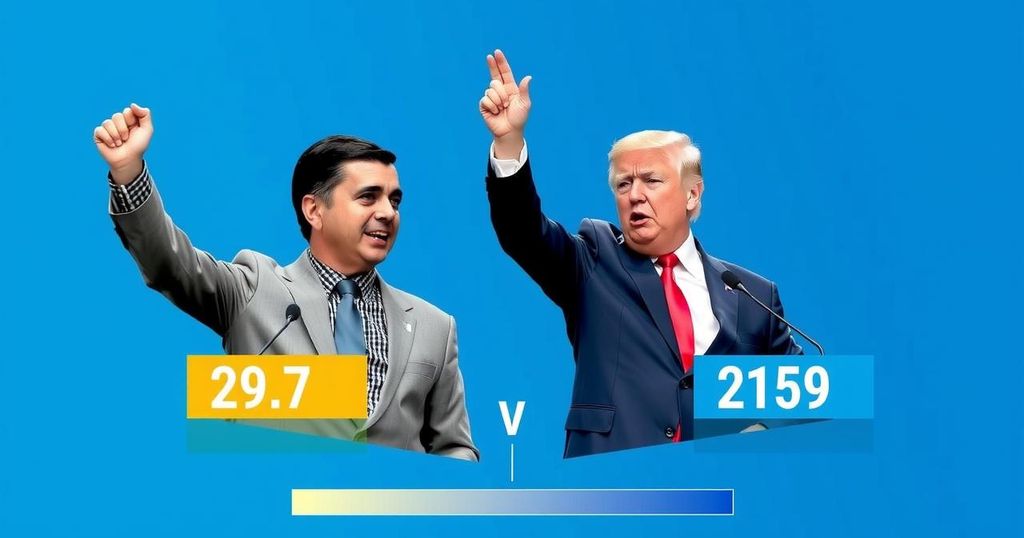Uruguay’s Presidential Runoff: A Close Contest Without Populism

The presidential runoff in Uruguay pits Álvaro Delgado of the National Party against Yamandú Orsi of the Broad Front, creating a tightly contested election. With rising crime rates and a split Congress, both candidates seek to resonate with undecided voters while pledging to cooperate regardless of the outcome. This election underscores the tension between maintaining stability and pursuing reform in contemporary Uruguay.
Uruguay is currently witnessing a highly competitive presidential runoff election between Álvaro Delgado of the National Party and Yamandú Orsi of the Broad Front, following an indecisive first round of voting. The election marks a significant moment for the country, as Delgado seeks to uphold the policies of the outgoing center-right government, while Orsi aims to continue the progressive legacy of the previous leftist administration. Both candidates face challenges, including rising crime rates, a divided Congress, and public disinterest in the elections, which are marked by an unusual consensus on key governance issues.
In the most recent voting round, the candidates are nearly tied, with polls indicating a close competition and a substantial proportion of undecided voters. The lack of a fiery anti-establishment sentiment has led to electoral apathy, distinguishing this runoff from similar events in other countries. Orsi advocates for a community-based approach to prevent crime, while Delgado promises stricter measures, amid concerns from the public about safety. Critics suggest that neither candidate offers innovative solutions, choosing instead to negotiate policies that maintain the status quo.
Delgado, benefiting from Prime Minister Luis Lacalle Pou’s favorable reputation, aims to extend the incumbent administration’s policies, particularly focusing on economic initiatives and foreign trade relations. Conversely, Orsi, with his background in education and local government, presents himself as a moderate reformer who intends to engage more communally rather than pursue radical policy reforms. Both candidates have pledged to cultivate cooperation regardless of the election outcome, highlighting the importance of democratic principles in Uruguay.
The positioning of both candidates illustrates the complexities of contemporary Uruguayan politics: a delicate balance between maintaining stability and embracing change. Their proceedings in the runoff will likely establish the nation’s political trajectory in the years to come, amidst a backdrop of social challenges.
Uruguay’s political landscape has been significantly shaped by its recent history, particularly after years of leftist governance under the Broad Front, which introduced various social reforms. The shift to a center-right government in 2019 marked a pivotal moment for political dynamics in the country. As the current presidential campaign unfolds, issues like social spending and economic inequality dominate discussions, even as voters express increasing concern over violence and public safety. The impending election reflects broader regional trends but uniquely lacks the populist fervor seen elsewhere in Latin America.
In summary, the Uruguayan presidential runoff presents a nuanced battleground where Álvaro Delgado and Yamandú Orsi address critical issues facing the country. With a nearly equal footing in the polls and a shared commitment to cooperation, both candidates exemplify the challenges and expectations of democracy in Uruguay. The outcome of this election will not only determine the leadership style of the nation but also the future direction of its political and social policies.
Original Source: www.cnn.com








